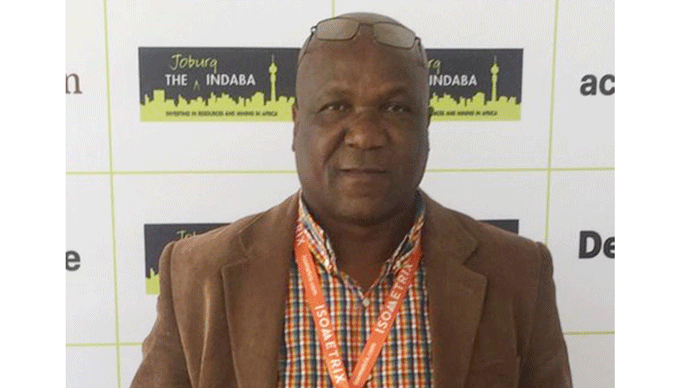
SHAME MAKOSHORI, RECENTLY AT CABORA BASSA OILFIELDS INVICTUS Energy — the Australian headquartered resources outfit that is hoping to make Zimbabwe’s first oil find — says it is unfazed by fears it could strike dry seams as it is pursuing a multi-commodity business model.
If it does not get oil, Invictus will be comfortable with gas, given that demand for the commodity has rocked in the past decade, giving healthy returns for investors with a footprint in this energy subsector, officials said last Friday. The firm announced on Friday that it would be sinking Mukuyu-1 — the first of two test wells expected at its claims in Northern Zimbabwe — following five years of full-scale exploration that has guzzled US$16 million.
Speaking to reporters at the test well site about 15km Northwest of Mahuwe Growth Point, Paul Chimbodza, a shareholder in the project, said there had been a flood of queries over Invictus’ confidence as global energy giant Mobile explored and abandoned the oilfields about 30 years ago.
He said the giant was at the time an oil focussed outfit. In contrast, Invictus is a multi-commodity operation with bigger interests in gas and oil. With demand for gas rising, the firm would be happy to develop an operation that extracts and ships out the commodity.
“Mobile was chasing for oil, not gas,” Chimbodza told reporters
“They were very specific. After 10 years, Mobile made the decision that the Cabora Bassa region has more gas than oil. Thirty years ago the gas market was non-existent.
“But you can see that even in our homes now we have been using more gas. It is only now that we have started to use gas. In addition, there had been gas discoveries in Mozambique and Mobile figured that out. This is why Mobile left,” Chimbodza told reporters.
Mobile traversed the Zambezi Valley for a period spanning over a decade before leaving in 1992.
- Chamisa under fire over US$120K donation
- Mavhunga puts DeMbare into Chibuku quarterfinals
- Pension funds bet on Cabora Bassa oilfields
- Councils defy govt fire tender directive
Keep Reading
But if Invictus makes a gas find, its footprint will extend beyond the domestic and regional markets to feed a global gas market space that has rapidly expanded as the world battles to find a solution to a growing energy crisis.
In Zimbabwe alone, liquefied petroleum gas (LPG) consumption has rocketed 833% in the past year as households, battling frustrating blackouts, turn to alternative energy.
Gloria Magombo, permanent secretary in the Ministry of Energy and Power Development told businessdigest in May that Zimbabwe guzzled 56 million kg of LPG last year, compared to six million kg in 2012.
The rise was mostly driven by robust demand from households, who have been confronted by gripping power blackouts as national power utility Zesa Holdings struggles to match consumer demands.
Mukuyu-1 sinking had first been slated for the final quarter of 2021.
But the globe was at the time still battling to forestall pandemic waves, which crippled global supply chains. In addition, Exalo, the rig that has been given the mandate to deliver what would be Zimbabwe’s first oil well, was undertaking similar adventures off the Tanzanian coast, before being held up by customs authorities in that country, in a yet to be explained hold up.
The Australia Stock Exchange-listed junior would be injecting US$16 million for the Mukuyu-1 operation.
But before Cabora Bassa hits “transformational” phases Exalo would have to strike gas or oil, as it drills 3,5 km down in an operation projected to last eight weeks.
The US$16 million will bring total expenditure for the 100 000 hectare asset to US$32 million in cumulative expenditure since the firm gained exclusive rights to explore the Zambezi in 2017, officials said.
The operation has in the past few weeks received a boost following Exalo’s arrival.
At the well site in northern Zimbabwe, shareholders said they were anxious to find out if promising exploration data at hand would end with oil gushing out.
On Friday, at least 85% of Exalo had been assembled at Mukuyu-1.
It towered defiantly above swathes of Mopani woodlands at the heart of boundless jungles, as Chimbodza, managing director at Geo Associates, Invictus’ local partner, described it as a “monster”.
“We don’t know what is underground until this rig does its work. But the seismic scan holds structures that we believe are hydrocarbons. And hydrocarbons include both oil and gas. We hope to start our first spud (drill) by the end of this month or the first week of September,” Chimbodza said.
“Chimbodza projected that investors would inject US$100 million before the first oil or gas oozes over the ground.










